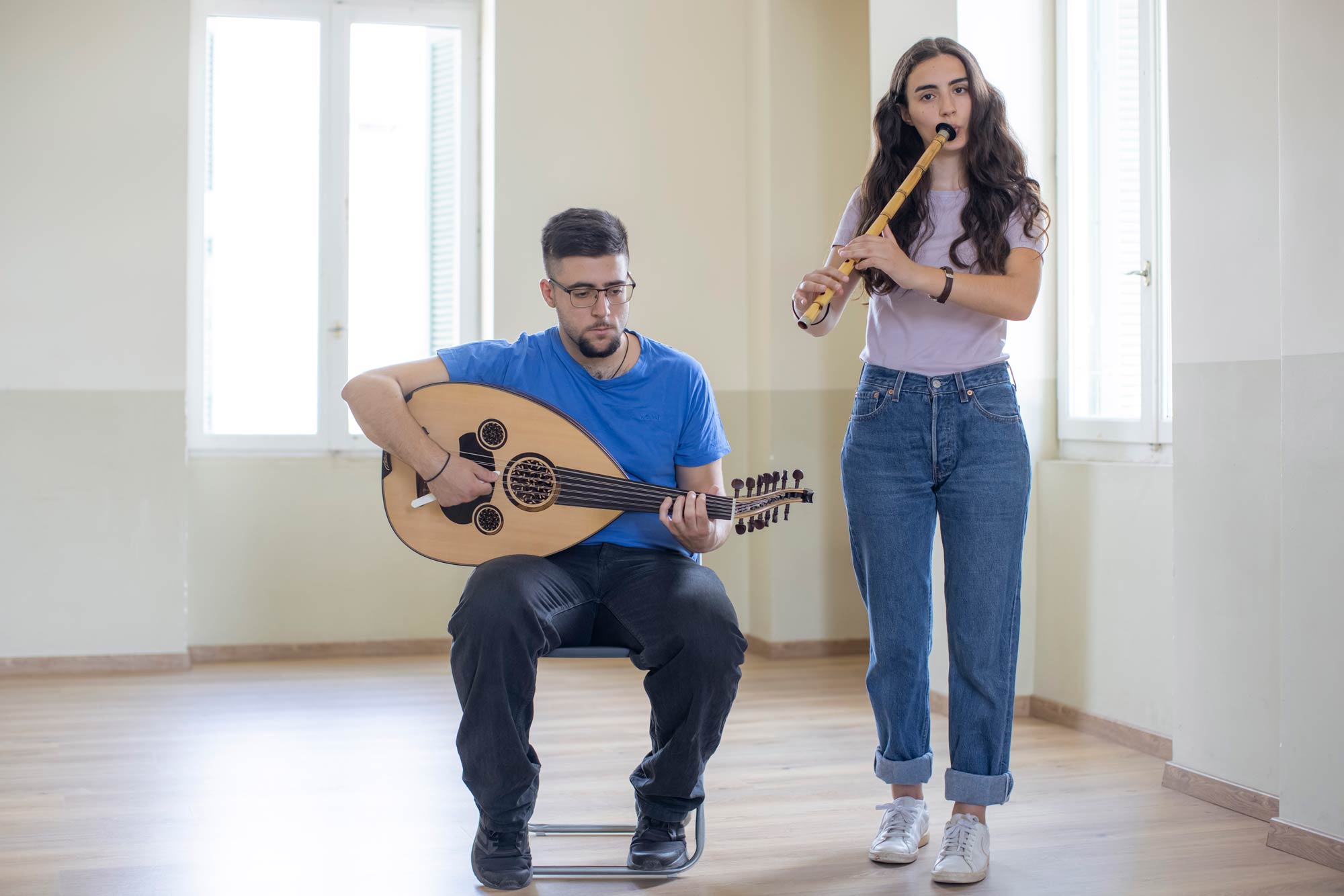Traditional music is by definition the music that is handed down from word of mouth, from generation to generation. It is usually not penned by a named composer but by anonymous people. It is born by the people, formed and finally handed down as a legacy to next generations. So by its very nature this music is experiential, practical in nature and taught by the teacher to the student in practice. However, as Greek traditional music is within the urban environment and in order for someone to study it in depth, knowledge of theory is also necessary.
In the School, we cultivate all those elements that maintain the practical nature of this music, such as musical memory, auditory learning, etc. At the same time, however, we strongly recommend the knowledge of the staff notation and its theory.
The curriculum of the School is based on the curriculum of the Ministry of Culture and Sports and includes – in addition to the individual course for the instrument of choice – a series of secondary theoretical courses aimed at the most complete and comprehensive education.
At the School, the Artistic Direction proposes to each student the study program that suits the best based on their interests, needs and skills. After the end of their studies, all students receive the corresponding certification of attendance, while in some cases the student has the right to claim the official qualifications from the Greek state, the Degree and the Diploma in the institution of his choice.
An important area of education at the School is the participation of students in student orchestras. Each year small orchestras are formed that take it upon themselves to study and present a selected repertoire of specific regions. The participation of the students in the orchestras is considered necessary and catalytic for the musical education and training of the students and follows them until the end of their studies at our School.
